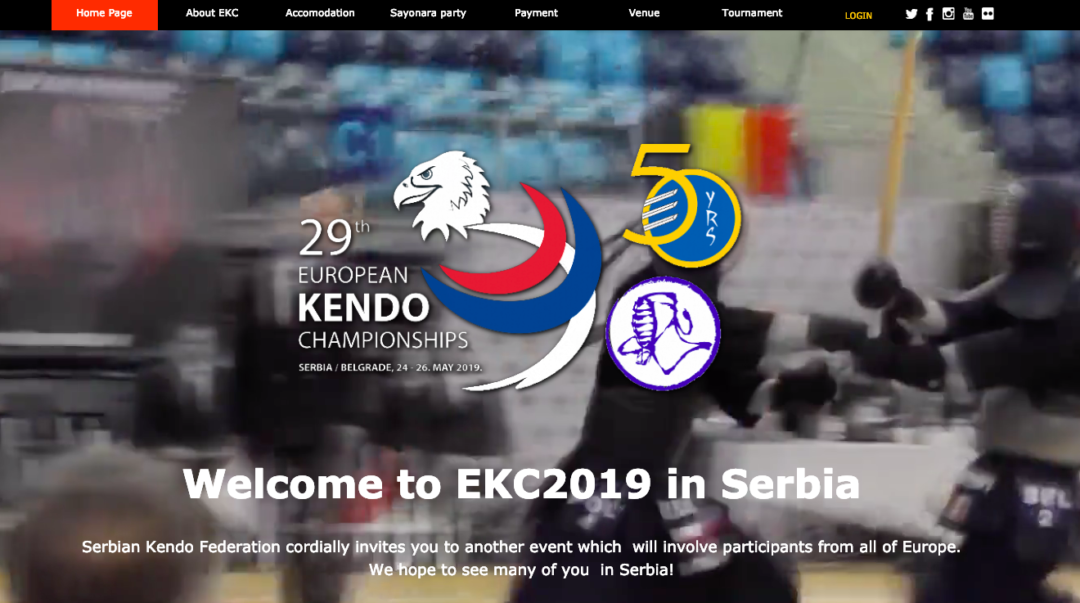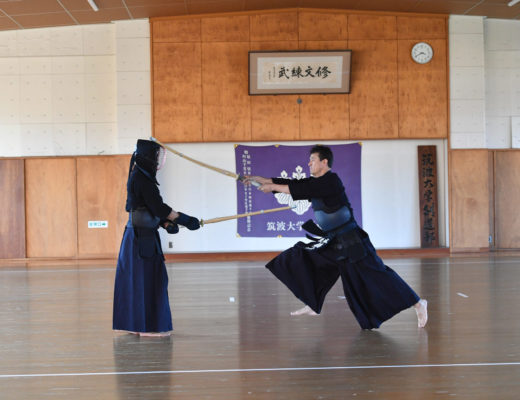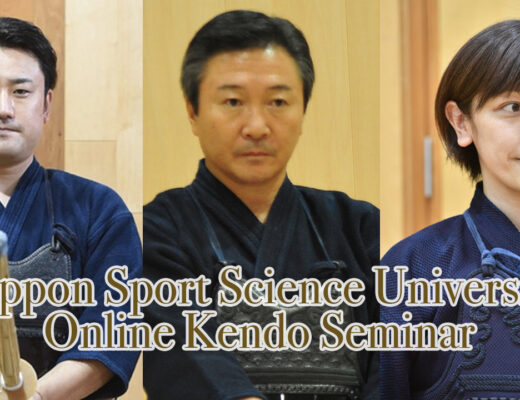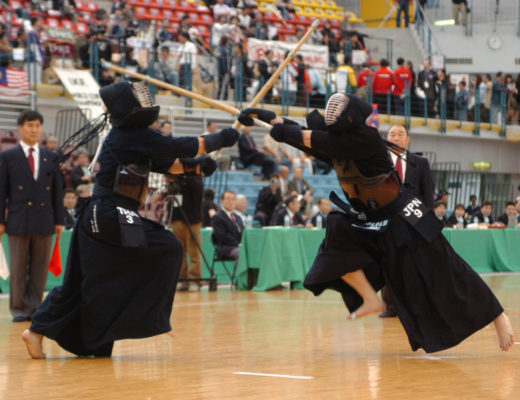Players of each countries have been announced on the official site of EKC2019.
http://www.ekc2019.com/countries.html
*Click on the national flag to see players
40 countries will participate this year. EKC started in 1974 and it is the largest Kendo tournament in Europe. EKC is held in every year except WKC is held.
Representatives of each country train for the purpose of this match.The Kendo Jidai editorial team will visit Serbia for coverage of the EKC this year. We will publish articles such as latest results updates and interviews with players, so that those who can not come to the spot may enjoy EKC. In order to further boost EKC, we received comments from representatives and former representatives on their expectations for the EKC.
Dario Baeli
Hello my name is Dario Baeli, i am the captain of italian team in the 29th european kendo championships in Serbia. I’ve been in national team since 2013 but this year will be so special for me, my team will be almost all new with many young kenshi and it will be exciting and i am sure that we can make it special time! I think every team has now the chance to do an excellet tournament, of course the favourites team gonna be France, Poland, Serbia, hungary, but we’ll give it all to try to surprise everyone. See you there!!!
Fabrizio Mandia
Since 2001 I have had the privilege of honoring the Italian Kendo National Team with my commitment and sacrifice, ending my competitive career with the national team in 2018 with the Encheon World Championships. I am really happy and proud of the path I have taken and which allowed me to become the Italian Kendo Confederation. A challenging, educational path that has changed me, which has improved me. This year the European Championships will take place in the beautiful Belgrade. The Serbian movement represents the example of success and growth in the Kendo movement in Europe thanks above all to the extraordinary work done by the President and Friend Dusan Nikolic of the Federation of Kendo Serba and by all the federal staff and practitioners who contributed to the growth of movement. I wish him all the best and all the participants of the Championship, to be able to express the best of European kendo.
Dance Yokoo
It have been 6 years since I stopped fighting in the German national team and I’m visiting the EKC and WKC time to time as a kendo fan since then. I’m planning to visit the EKC in Belgrad this year and I’m already very excited to see the teams with old and new faces and their exciting fights!!! Good luck to all the teams💪🤞
Maemoto Kensaku
It is the first EKC since October when we got a new coach and team. Over the past six months, the team has been united with this tournament as the goal. We are still a young team, but that’s exactly what we will use as a strenth to win prizes in these championships!
Luis Coelho de Sousa
I was a member of the Portuguese Kendo team between 2006 and 2018. I believe that what makes the EKC quite special is the fact that it allows a high-number of kendo players, countries and categories to come together and compete on a constant, yearly basis. If you look at any other region in the world, they basically need to wait 3 years for a truly international and high-level competition – the WKC. In Europe (or in fact, in the broad EKC affiliated broader region), you have the chance to prepare, test yourself and bring back home the experiences of such an intense and exciting event.
Furthermore, it’s worth mentioning the fact that there is a dedicated Junior competition (teams + individual) and until recent years a higher number of individual Men spots for each country in combination with round-robin system passing through 2 people to the next phase. This has resulted in an overall bigger chance for everyone to fight more – and hence get more experience. I am convinced that this has contributed for the impressive improvement that the overall EKC level has achieved.
This is probably the most important aspect of the EKC – and I am sure it goes around quite unnoticed to many. Making it possible for the youngsters who are lucky enough to have started Kendo before I did, to enter the adult age with a couple of international competitions on their backpack, is a true sign of development for both the Euro region but also for the countries that can afford to bring these future kendo stars of their teams in touch with this event.
In that sense, for Portugal, it is quite special. The number of active players probably remains on a 2-digit number and if you look at the kids, until a few years back there was none. This year, Portugal will participate for the first time with teams on all three categories – Men, Ladies and Juniors. There are many countries in Europe, with longer kendo history, higher number of members and easier or better geographical connections that can’t claim this fact. This is therefore an historic fact of utmost importance for a small country like Portugal and a motive of natural proud. It is a sign that Kendo has definitely been established in Portugal and it’s now virtually impossible to lose it.
I wish the Portuguese juniors a remarkable first championship – winning, scoring ippons or managing the pressure would be great goals – but simply being there, it’s a definite victory already!
It has always been great fun and an invaluable field of unique learning opportunities. One must deal with a wide variety of countries, styles and technique. This results in pressure – and as always, the secret is how to deal with it as a team and try to have fun! My main feelings right now go to some nostalgy that started for me with the 2006 WKC in Taiwan and stopped last year in Korea. Before you know it, 12 years have passed and it’s time to move on!
It has grown to become a very large and professional event, but it wasn’t always like that… I believe that around 15 years ago this event has seen a turning point in terms of organization and the standards rose fast and high. I still remember clearly (and will continue to remember…) my first experience in the EKC, in 2007, when Portugal held the event in Lisbon. On top of fighting in both team and individual, I was co-organizer and was deeply involved in its preparations for several months – in fact, I took a break between jobs for 6 months (!) and together with a very small group of people, everything came together in the end. So, while put in place with a quite vulnerable organization behind, it resulted in a remarkable and recognized event from the outside. It introduced, for example, the usage of 4 Shia-jo. The EKC and European cooperation spirit proved also decisive and here again you saw countries like Spain or Italy coming together and helping with teams of volunteers and shiai-jo table managers.
These times are mostly gone now and even in small countries, you see high-level, professionally organized and supported European Kendo Championships events. I am sure Serbia will not disappoint either and wish all the participants and organizers best of luck and success!





No Comments